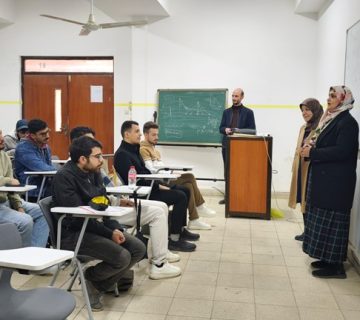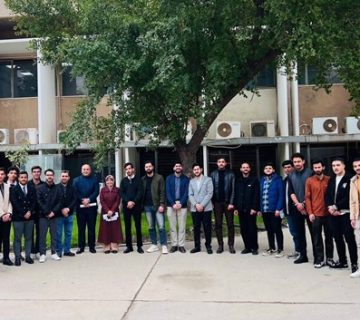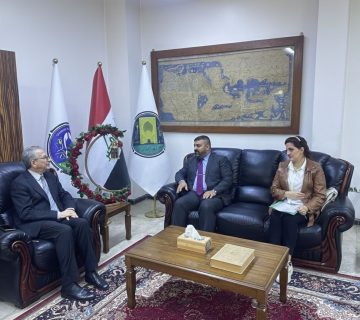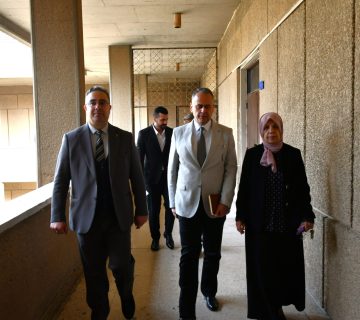The Civil Engineering Department at the College of Engineering, University of Baghdad, held Ph. D thesis examination titled:
(Crisis Management in Iraqi Procurement System and Construction Projects Challenges with Creating an Optimization Model)
By Sadiq Abdul hamza Hasan
The examining committee was:
- Prof.Dr. Hatem Khalifa chairman
2.Assist. Prof. Ahmed Mohammed Raoof member
- Prof. Dr.Waleed Mustafa KHammas member
- Assist. Prof.Abbas Mohammed Burhan member
- Prof.Dr.Sawsan Rasheed supervisor
6.Dr. Azhar Hussien Saleh supervisor
The thesis summarized as below:
The problem of the research lies in the fact that the federal system for public contracting in Iraq, which is represented in (the constitution, laws, instructions, regulations, controls … etc.) Most of the construction and service projects that have a direct and indirect impact on the contracting parties and citizens in the provision of services, which sometimes leads to delay, failure or weakness in implementation during the life cycle of the project, which is funded from the general budget of the Republic of Iraq.
The first primary objective of this study is to assess the public contracting crisis in the Ministry of Planning – General Directorate of Governmental Contracts responsible for managing all contracting entities in Iraq, while the second objective was to identify the contracting crisis that has a direct impact on construction projects during the life cycle (before, during and after) ,
To achieve the first objective, the researcher applied a new modern technique of the World Bank 2018 on the contracting system in the Republic of Iraq, which is called “MAPS “Methodology Assessing of procurement System” – the results of which showed 8.5% of the criteria were largely met, 41% of the criteria were partially met, and 32.5% of the criteria were met. Significantly not met and 18% of the criteria were not applicable.
To achieve the second goal, more than ten guidelines for public contracting were studied, including (1110 inquiries) that were submitted from the governorates and ministries related to projects to the Ministry of Planning to identify, collect and analyze factors that have a direct impact on construction projects, and 165 factors were found, which were analyzed to reduce them to 55 factors through the questionnaire and then classified into three groups that have a direct impact (15) factors on time, (13) factors on cost and (8 factors on performance) based on the relative importance index.
Three models were created to predict the crisis of public contracting, which has a negative impact on projects, “multiple linear regression”, “fuzzy hybrid algorithm models” and “artificial neural networks”. For each model, three sub-models were created about time, cost and performance, and information on 65 A project in 7 governorates (Basra, Ninewa, Babil, Wasit, Kirkuk, Najaf, and Maysan) to build these models and used 10 projects to evaluate prediction models, and the results showed that artificial neural networks
It is the best model for data accuracy.
After that, a program was developed to manage the public contracting crisis in all projects related to the governorates and ministries to limit its effects, and the structure of the public contracting crisis management office was also developed with a job description that helps the Ministry of Planning and all contracting entities to enhance the implementation of their projects.
Finally, all the data, information, proposed program and structure proposed for crisis management in this letter has been officially approved by the Ministry of Planning and will be disseminated and used in all contract departments in Iraq.








